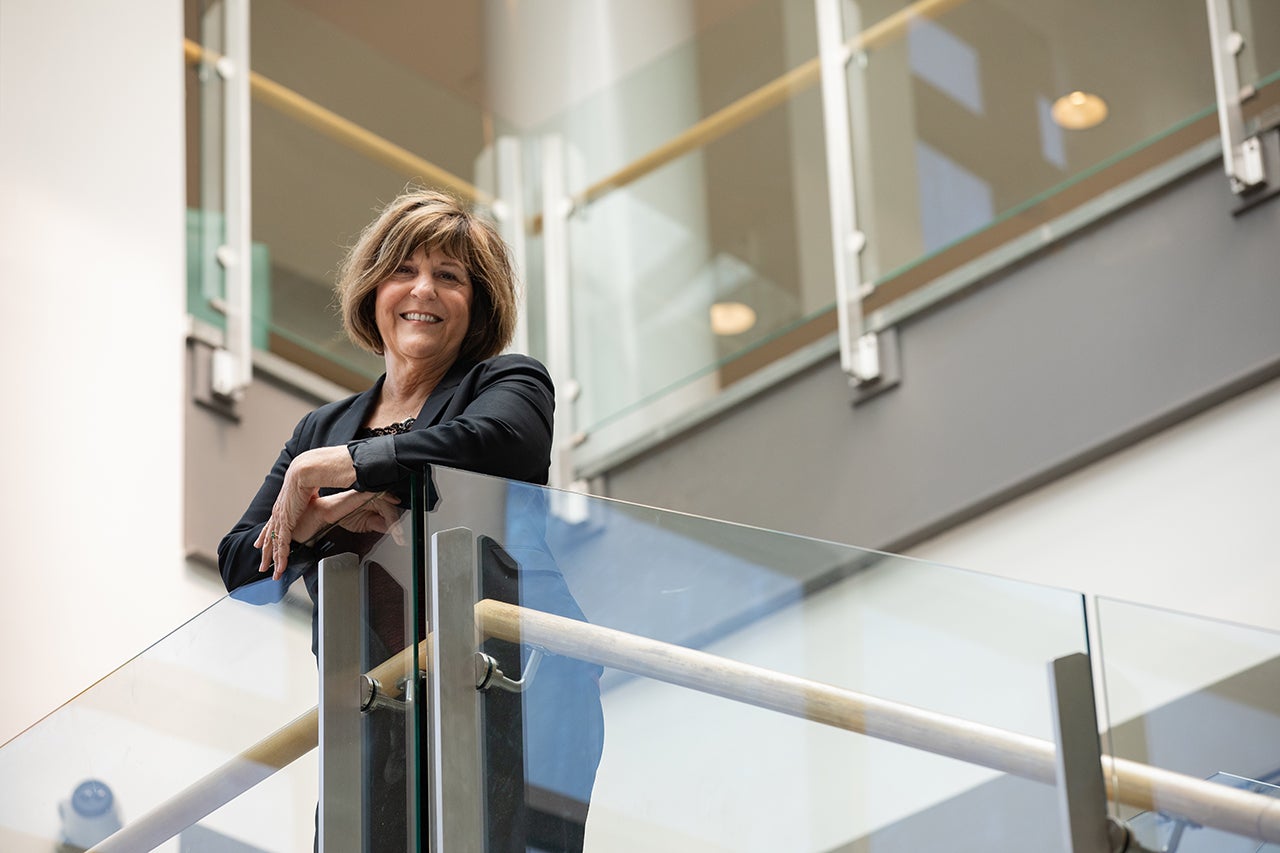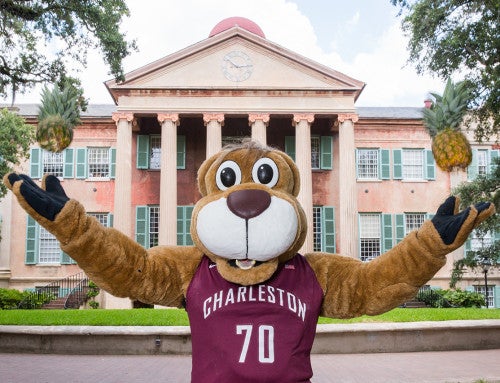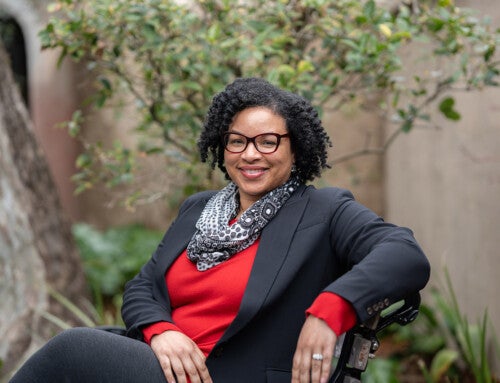As a student at the College of Charleston, Karen Eippert ’92 figured out what she really wanted to do for a living. Now, as the director of the Health Professions Advising Program at the College, she is actually doing it – and helping students tap into their passions and figure out what they really want to do for a living, too.
“This is my dream job,” says Eippert, who first came to the College as a nontraditional student, majoring in psychology while also raising her children and working full-time. It wasn’t easy, and, at times, she questioned her decision to go back to school. “But it was definitely one of the best choices I’ve ever made. I learned that students only reach their full potential when they are courageous enough to ‘pull back the layers’ and find out what they really want.”
And what she really wanted was to help others find their own “perfect” career path. Upon graduation, Eippert’s own career path led her to the Medical University of South Carolina, where she worked in recruitment and student development for 13 years, learning about the many career opportunities in healthcare. During this time, she also completed a masters in career development, studying the world of work and ultimately realizing that people can end up in careers that are totally unrelated to their desired goals.
Then, in 2006, she read a job description that pretty much described her own desired goals: the director of health professions advising at the College of Charleston.
“It was like reading my life’s mission statement,” she recalls. “I thought, ‘Oh, my God! This is it!'”
And that’s what she wants for all the students she advises. From the very moment they step onto campus for orientation, students interested in health professions meet with Eippert to learn about the journey they are about to begin and what will be expected of them.
“Our students are the absolute reason I’m here, and it’s my goal to make their time at the College rewarding and to help them navigate the challenging path to medical education,” says Eippert, who – with the help of three peer educators – advises approximately 25 students a week, whether they major in biology, chemistry, public health, exercise science, psychology, business or even music. Eipppert notes that 85-90 percent of pre-health professions students are science majors, but any student who checks the “pre-health” box when they’re declaring their major is added to the pre-health advising list. “That’s where my career counseling comes in. There’s more than one path to a career in healthcare.”
The pre-health advising office also assists pre-health students in gaining access to shadowing and volunteer experiences, prepare for standardized tests and succeed in the application process for medical school. The program also offers an MCAT prep course, which has generated enough revenue to create several scholarships for next year’s MCAT class. In addition, Eippert supports several professional organizations for pre-health students on campus and works with the Career Center, Academic Advising and Planning Center, Center for Student Learning, Office of Admissions and the various academic departments to support the work they do with each individual student.
“What works for one person doesn’t necessarily work for the next,” Eippert says. “That’s why I really try to listen to each student and to what they really want to achieve.”
Indeed, the College offers something special for pre-health professions students.
“Because of our foundation in the liberal arts and sciences, everything a student needs is available here if they just seek it out. They’re taking courses like Biomedical Ethics and Death and Dying, which emphasize the humanity in medicine,” says Eippert. “And they’re getting exposure to a diverse group of people, too – so they’re developing strong interpersonal skills that will ultimately make them better clinicians. Competitive grades are extremely important, yes, but you have to learn about people, and you have to learn about yourself.”
And, of course, sometimes that means learning that a career in medicine isn’t actually the best path for you.
“Many of these students decided they wanted to be physicians in junior high school – maybe they really liked their pediatrician or their parents encouraged it – but they didn’t have a realistic grasp on what is required of a pre-med student,” Eippert says. “That’s where I come in. I can help them self-explore and also explore other areas of healthcare. It’s OK if plans change: It doesn’t mean you’ve lost your way, but rather that you’ve chosen a different direction. Plans can always be adjusted – no big deal.”
What is a big deal is finding the right career path.
“To me, it’s very important to do what you love. Going to medical school is a lot of work, so you really have to know that you just can’t imagine yourself doing anything else,” Eippert says. “That’s why I say that it’s vital to know what you really want to do. Even if you don’t know if it exists, we can explore new areas together. And when students find it, you can see the difference in them. There’s relief, but also a sense of, ‘Now I know my purpose.’”
And seeing that change is what gives Eippert her purpose: “That’s the best part: watching students find their own passion and realize their dreams.”





